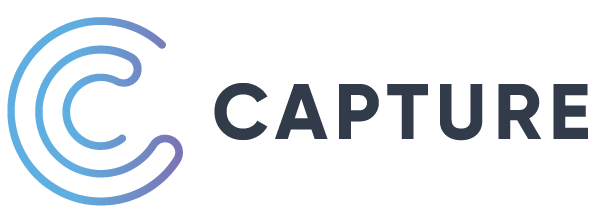When content creation is no longer a hobby and becomes a business
Content creation and influencing has become a profitable industry, but a lot of famous faces started by creating content as a fun new hobby in their spare time. Perhaps that's where you are now, or maybe things have already started to take off.
If you've built a significant following and have started making money, chances are your hobby has, or will soon become a business. And as a business owner, you must pay tax on your profit.
When your content creator income, e.g. from Google AdSense, exceeds £1,000 in a single tax year, you must register with HMRC and file an annual self-assessment tax return. If your combined income exceeds your tax-free allowance, you must start paying tax. If you don't, you may be penalised by HMRC.
If you're reading this, you're obviously pondering your tax position and wondering whether you need to pay income tax. Read on for Capture Accounting's helpful guide to find out whether your hobby or side hustle has turned into a business and, if so, what to do next.
For personalised advice on accounting for your income, contact Capture Accounting. We specialise in helping content creators and all sorts of online entrepreneurs manage their finances, fulfil their tax obligations and maximise their profits.
What differentiates a content creation hobby from a business?
Lots of people use social media to document their lives and amass a following, many of whom are probably friends and family. This is obviously not a business. But if you start to dedicate yourself to content creation and grow your influence enough to monetise your channels - that's when you need to become aware of the rules on income tax.
If you make income from Google AdSense on YouTube, promote brands and products on Instagram, sell content, tutorials or products to customers, sell large volumes of items on Vinted, or generate any other income related to your online activity, this applies to you.
If we're talking a few hundred pounds a year, then there's nothing to panic about, but have it on your radar as your income increases. Once you get to £1,000 per year, HM Revenue & Customs (AKA HMRC, AKA the Taxman) will expect you to register for tax purposes. You will then be considered a sole trader, which is the simplest kind of business structure in the UK.
It's important to take control of your professional life as soon as you start earning a self-employed income. It's by no means something to stress about. You're clearly thriving online, so this is not beyond your capability! But if you are in doubt and need help, reach out to a specialist content creator accountant like Capture.
What are the new HMRC tax rules for hobbies, especially on online marketplaces
There's been a lot of talk online from outraged sellers about the 'new' so-called 'side hustle tax'. There's no such thing. It's come about after a recent crackdown by HMRC to ensure that people who sell online and regularly exceed the trading allowance of £1,000 are registered for tax purposes and paying income tax, as the law dictates.
From now on, online marketplaces like eBay, Etsy and Vinted have to provide sales information directly to the tax authorities. This flags up anyone making serious money who may have 'forgotten' to register for income tax.
Of course, many people are simply unaware that they owe tax on what they earn through side hustles. This is why, at Capture Accounting, we're dedicated to helping online entrepreneurs understand and meet their tax liabilities.
How much income tax will have to be paid?
First of all, it's important to understand that HMRC looks at your income as a whole. If you have a regular 9-5 and a side hustle, they will consider the sum of both for tax purposes.
Your salary from employment is automatically reported to HMRC by your employer, but you are responsible for declaring your hobby earnings through the self-assessment system.
Everyone in the UK gets a tax-free personal allowance of £12,570 in a single tax year. If, when combined, your employed salary and hobby income falls under this, you don't pay tax.
You also get a tax-free trading allowance of £1,000 for hobby income. That's on top of your personal allowance, meaning that your combined income is free of taxes up to £13,570.
Once your self-employed hobby income goes past £1,000 a year, then you need to register and report it to HMRC.
Income tax is paid as a percentage of your earnings at either 20%, 40% or 45%, depending on how much money you make. See the latest tax rates and bands at Gov.uk. You pay tax at the corresponding rate for the portion of your income that falls in a particular bracket.
When do you do a self-assessment tax return?
The self-employment tax year begins on 6 April and ends on 5 April of the following year. You must file your self-assessment tax return and pay any taxes and National Insurance owed by midnight on 31 January after the tax year ends.
You should set aside at least an hour to complete your tax return. The online form asks you to declare the sum of all of your earnings, including employment, self-employment and any other income (say, income from a property you rent, your dog-sitting side hustle, anything that people pay you for, basically). This determines how much income tax you owe.
Crucially, you can reduce your gross income by the total of your business or hobby expenses, which in turn reduces your income tax bill. This includes everything you pay out for to be able to run your business, including equipment, travel and subscriptions. The rule is that the cost must be wholly for the business, not for personal use.
Read our guide to expenses for influencers for more info.
It's really important that you take control of your business accounts early on and log every last allowable expense. The help of a specialist content creator accountant can be very valuable, as they can guide you on how to keep financial records and make sure you don't miss out on any tax deductions.
How to register your content creation hobby as a business
Here is the process you should follow to register for self-assessment once your hobby earnings or side hustles go past the £1,000 a year mark.
- Register with HMRC as a self-employed sole trader via the government gateway. You will be allocated a UTR (Unique Tax Reference), and from then on, you'll receive regular reminders to file your tax return.
- Establish good accounting processes to keep track of your income and expenses throughout the year. An accountant can help you get up and running with smart cloud accounting software like Xero.
- Prepare and submit a self-assessment tax return and pay the tax owed every year no later than 31st January.
- Keep records of your business expenses for at least seven years.
- If your earnings are likely to exceed £90,000 per year in the near future, you must also register for VAT.
If you’ve been on your content creating journey for some time, you may have already completed these steps. Don't forget the last one - it often trips people up.
What happens if I don't declare my hobby income to HMRC?
If you are earning £1,000 per year or more from your online activities and you haven't done any of the above, you need to act now. If you don't, you’re falling foul of UK tax law and could be subject to penalties and interest equal to 100% of the tax you owe if HMRC gets to you first.
The tax system is highly sophisticated and uses supercomputers to gather data from multiple sources, such as YouTube and Instagram. If HMRC uncovers evidence of influencers with big followings it can't match to tax records, they can open an investigation.
So don’t put this on the back burner. If you need advice or help, reach out to a specialist accountant like Capture.
Should I turn my content creation hobby into a business?
If you are serious about making your content creation hobby your full-time job and confident you can fulfil what's required of you as a business owner, then go for it!
Tax can seem scary at first, but if you get advice, keep good accounting records and follow the rules, there's nothing to stop you from following your dream.
Get advice on managing your influencer earnings from Capture Accounting
Reach out to Capture Accounting today for specialist advice on managing income from influencing and content creation. We help many leading influencers and content creators manage their finances, so we know your business inside out.
If you invest in our services, we'll make sure you stay compliant while keeping as much of your profit as possible. We can also offer business advice and register your business as a limited company when the time is right.
Contact us today for a discovery call.
Book a call
Apply for a call with Capture Accounting or request a more information below.
Request a Callback

Meet Reza
Reza is the Founder of Capture Accounting and also a content creator himself. He spends most of his time coaching and mentoring other accounting firm owners to build more profitable firms and do better for clients. You'll find him very active on LinkedIn.


